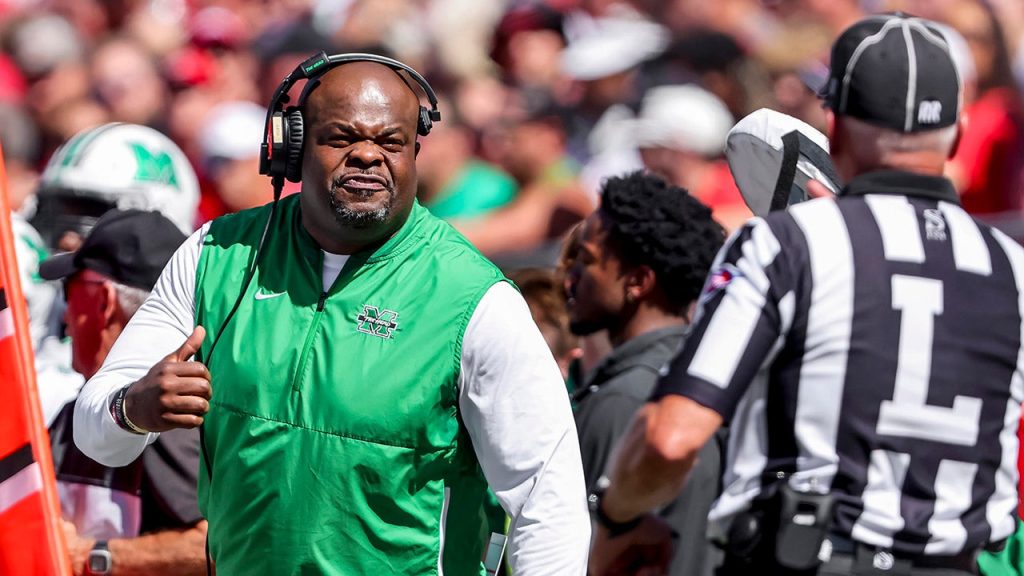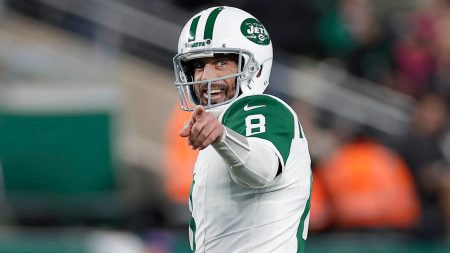The Sun Belt Conference levied a $100,000 fine against Marshall University’s Thundering Herd football program for their decision to withdraw from the 2023 Radiance Technologies Independence Bowl. This decision, attributed to player unavailability stemming from a combination of injuries, transfers, and the departure of former head coach Charles Huff, disrupted the bowl game’s organization and impacted multiple stakeholders, including the participating teams, the conferences involved, the bowl organizers, and broadcast partner ESPN. While acknowledging Marshall’s commitment to player health and safety, the Sun Belt Conference emphasized the detrimental nature and timing of the withdrawal, highlighting the broader repercussions for the conference and its members.
Marshall’s athletic director, Christian Spears, stood by the decision to prioritize player well-being, asserting that fielding a team under the circumstances would have been irresponsible. However, he also expressed remorse for the disruption caused, extending a formal apology to the affected parties. This act of contrition underscores the difficult balancing act between player safety and contractual obligations, a dilemma particularly potent in the context of college football’s postseason bowl system. The incident exposes vulnerabilities within this system, where team participation is often predicated on a delicate interplay of factors, including player health, coaching stability, and program morale.
The backdrop to Marshall’s bowl game withdrawal is a cascade of events initiated by head coach Charles Huff’s departure. Following a successful 10-3 regular season culminating in a Sun Belt championship, Huff declined a contract extension with Marshall, opting instead to take the helm at the University of Southern Mississippi. This coaching transition triggered a significant exodus of players through the transfer portal, further depleting Marshall’s roster and exacerbating the challenges leading to their ultimate withdrawal from the Independence Bowl. The loss of a substantial number of players, coupled with the disruption caused by a coaching change, created a perfect storm that compromised Marshall’s ability to field a competitive and safe team for the bowl game.
The Sun Belt Conference’s decision to impose a fine reflects the complex web of agreements and expectations that underpin the bowl system. Bowl games represent significant financial and promotional opportunities for participating schools, conferences, and host cities. The sudden withdrawal of a team disrupts these carefully orchestrated arrangements, leading to financial losses, logistical challenges, and reputational damage. While player safety is paramount, the conference’s action underscores the importance of upholding contractual obligations and mitigating the negative impacts of such withdrawals on the broader ecosystem of college football.
Marshall’s experience highlights the vulnerability of programs to coaching transitions and the subsequent player movement facilitated by the transfer portal. These dynamics can significantly impact team stability and competitiveness, particularly in the context of postseason bowl games. The situation also underscores the delicate balance athletic departments must strike between prioritizing player well-being and fulfilling their commitments to bowl organizers, conferences, and broadcast partners. This balancing act becomes even more precarious when coaching changes and player departures create unforeseen roster challenges. The incident serves as a case study in the potential consequences of such upheaval and the complex interplay of factors that can lead to bowl game withdrawals.
In the aftermath of the bowl game withdrawal and coaching change, Marshall appointed NC State’s offensive coordinator, Tony Gibson, as their new head coach. Gibson inherits a program grappling with the fallout of a tumultuous period, tasked with rebuilding the roster and restoring stability. The $100,000 fine imposed by the Sun Belt Conference serves as a stark reminder of the intricate network of obligations within college football and the importance of navigating these complexities with careful consideration for all stakeholders involved. The incident highlights the challenges faced by athletic programs in managing coaching transitions, mitigating player attrition, and upholding their commitments in the face of unforeseen circumstances.










